In Nepal, more than one in four women will experience gender-based violence in their lifetime.
In this blog we share the stories of three women from a VSO project in Nepal, who are leading a range of prevention activities to end violence against women and girls. Running interactive sessions with couples, families, community groups and leaders, VSO’s Gender Based Violence Prevention and Response project challenges the social norms that value men over women.
How Shirisha transformed perceptions of working women*
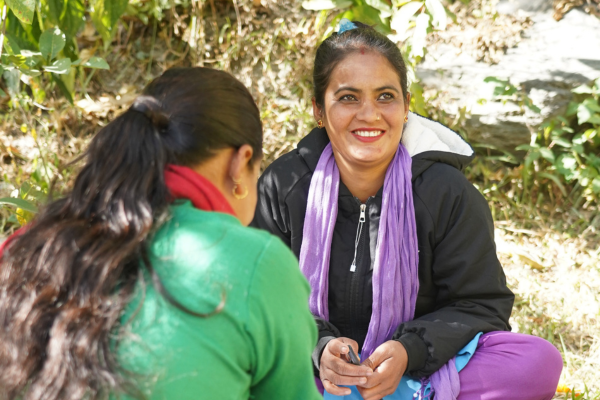
As a volunteer Community Psychosocial Worker, Shirisha spends her time interacting with survivors of gender-based violence, helping them to transition to a new phase in their lives. She helps identify people affected by violence by visiting homes and helping survivors to access support via a One Stop Crisis Management Center, where survivors can access medical support, seek help in reporting abuses, gain legal advice, as well as find shelter.
Although active in various campaigns against violence, Shirisha’s own home life was by no means easy.
Due to her job, Shirisha often travels to rural areas where women are facing violence, requiring her to work late hours. As a woman living in a traditional community, she was also expected to take care of her husband, children, and in-laws, as well as perform household duties.
Despite her love of her job, her husband and the community did not support her work. Her husband would doubt her every time she traveled for work and gossip from the neighbours put pressure on her to leave her work behind.
Her husband, though educated, adhered strictly to traditional gender roles. Shirisha remembers:
My husband used to pressure me to leave my job. He’d say that all other the females are staying inside, so why do you need to go outside for a job?”
Working alongside her fellow volunteers, Shirisha facilitated a couples discussion session in her local area. After attending, she decided to enroll herself and her husband in the program.
Couple discussion sessions address important topics such as gender norms, effective communication skills, and the dynamics of happy and unhappy relationships. The take-home exercise supported Shirisha and her husband to have open discussion with each other where they shared their feelings, views, and disagreements openly.
After attending, Shirisha’s husband became more attentive towards her. He realised that working on their relationship could make them both happier and improve their lives. He now puts effort into understanding what it is like to be a woman and the role they play in both the family and wider society.
Shirisha says “I was working to improve the lives of others by supporting them for justice, but my own life was not that easy. After attending the session, my life took a new turn”.
Now, the situation has changed. Her husband provides support for her at home when she must travel for work. Shirisha is encouraged by the positive behaviour of her husband and sees this as a step forward to building trust in their relationship.
She says “Working as a Community Psychosocial Worker, I learned many things about gender-based violence. After participating in the sessions, I have learned much more. I now know the importance of having equal responsibilities in handling household work, income generation, and decision-making. Now we make household decisions together.”
The teenager leading social transformation
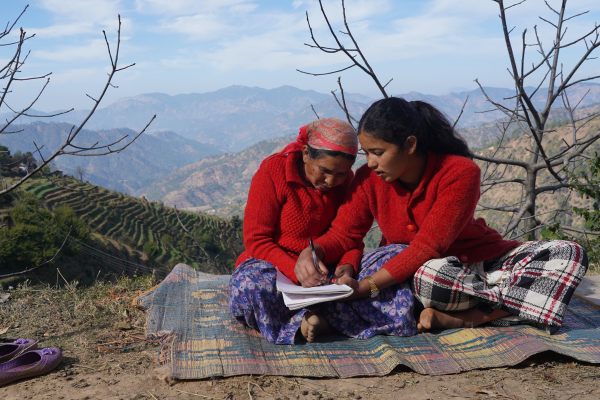
Alina*, age 16, lives in a household with five family members. In her community, girls and women are expected to perform household chores and should not speak or raise their voice.
Economic and social conditions in the community are marked by gender and caste-based discrimination and taboos, like ‘untouchability’ – a common practice in Nepal where women are expected to isolate during menstruation as they are seen as impure.
The community also has prevalence of issues such as child marriage, gender-specific roles, and limitations on women's interactions with men outside of their household. Alina loved school and wanted to continue her studies; however her family wanted her to get married instead.
Alina felt these rituals were against women’s rights, but she felt she could not speak out. The chance to attend a Rupantaran class within her school felt like a beacon of hope.
During Rupantaran sessions, adolescents are encouraged to engage in conversations around gender and social inclusion, child marriage, domestic violence, trafficking, and sexual violence.
They also discuss issues around family planning, early age pregnancy and safe pregnancy, sexual and reproductive health rights, gender equality, and equitable gender roles.
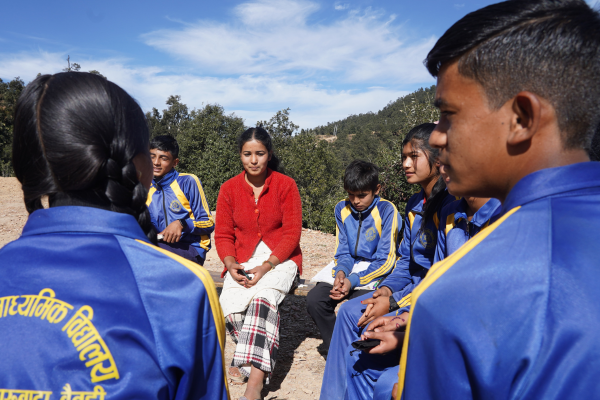
Alina grabbed the chance to learn new things about gender equality:
I came to know that there is an equal role and responsibility of every community to solve their societal problems. We can start the transformation with ourselves.”
Alina along with her friends started an awareness campaign against domestic violence. They have supported survivors to access help from agencies to help them gain legal justice.
“We should not tolerate violence. If you know that there is violence in your society, you should help.”
Alina shares learnings from the Rupantaran classes with her sisters, mother, friends, and other people in the community, helping make them aware of what domestic violence is and what their rights are as women. This has helped her to build her confidence and change attitudes within her family. She now hopes to pursue a career in social services so she can continue to help more women.
Ishya’s* story of resilience and triumph
Ishya married her husband Manish as it was the desire of her family. At first she was excited to be married but in reality, her marital relationship was far from harmonious.
She faced daily insults and discrimination from her husband, sharing:
My husband repeatedly used to tell me that he didn’t like me. I used to cry alone as I couldn't bear it. I felt my dreams had been shattered.”
Ishya and Manish’s home is far from the rest of the village, leaving Ishya even more isolated from the community. She received no communication, love or support from her husband, and had no financial independence or say in family decisions. She began facing sexual abuse as well as verbal.
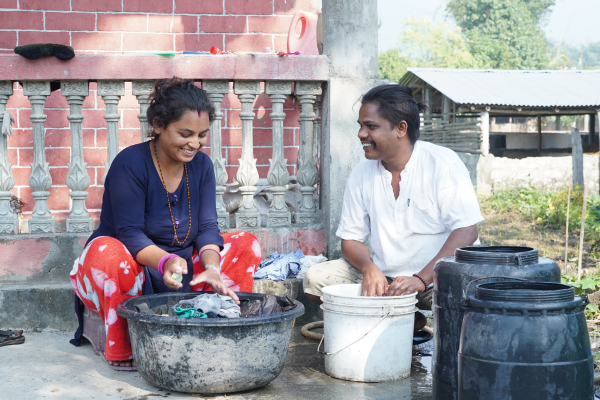
Ishya hoped that Manish’s behavior would change after they had their first child, but even during her pregnancy, her husband was indifferent towards her health and was often absent from the home. All this changed when a friend told Ishya about the couple's discussion program and persuaded her to join.
At first Ishya attended the sessions alone, but quickly realised the need to involve Manish in order to change his perceptions of their relationship.
The sessions provided insight to her about various forms of violence that exist, beyond the physical. She learnt that coercing sexual intercourse when a wife is unwell, or unwilling, constitutes sexual violence and that the financial negligence of her husband towards her was a form of violence.
They started to communicate more openly with each other and discuss the different issues going on in their home. Gradually, Manish realised the mistakes he had made in his marriage in the past.
Manish began sharing household responsibilities with Ishya and working on his communication:
“I realised that my behavior was a form of violence. Now I love my wife without any violence,"
The couple also participated in follow up meetings where they shared their learnings and experiences and listened to the struggles of other couples in their communities.
Ishya finds that her relationship has been transformed since participating in the sessions.
"After years of seeking his love and support, happiness has entered my life," she shares.
VSO uses a gender transformative approach, imparting knowledge and skills that allow people to reflect and challenge gender discriminatory attitudes. Interventions, such as couple dialogue sessions and Rupantaran classes, are designed to transform harmful norms and break the culture of silence around gender-based violence so women can seek help.
Learn more about the project in Nepal
*Pseudonyms have been used to protect the identity of the people mentioned in this story.
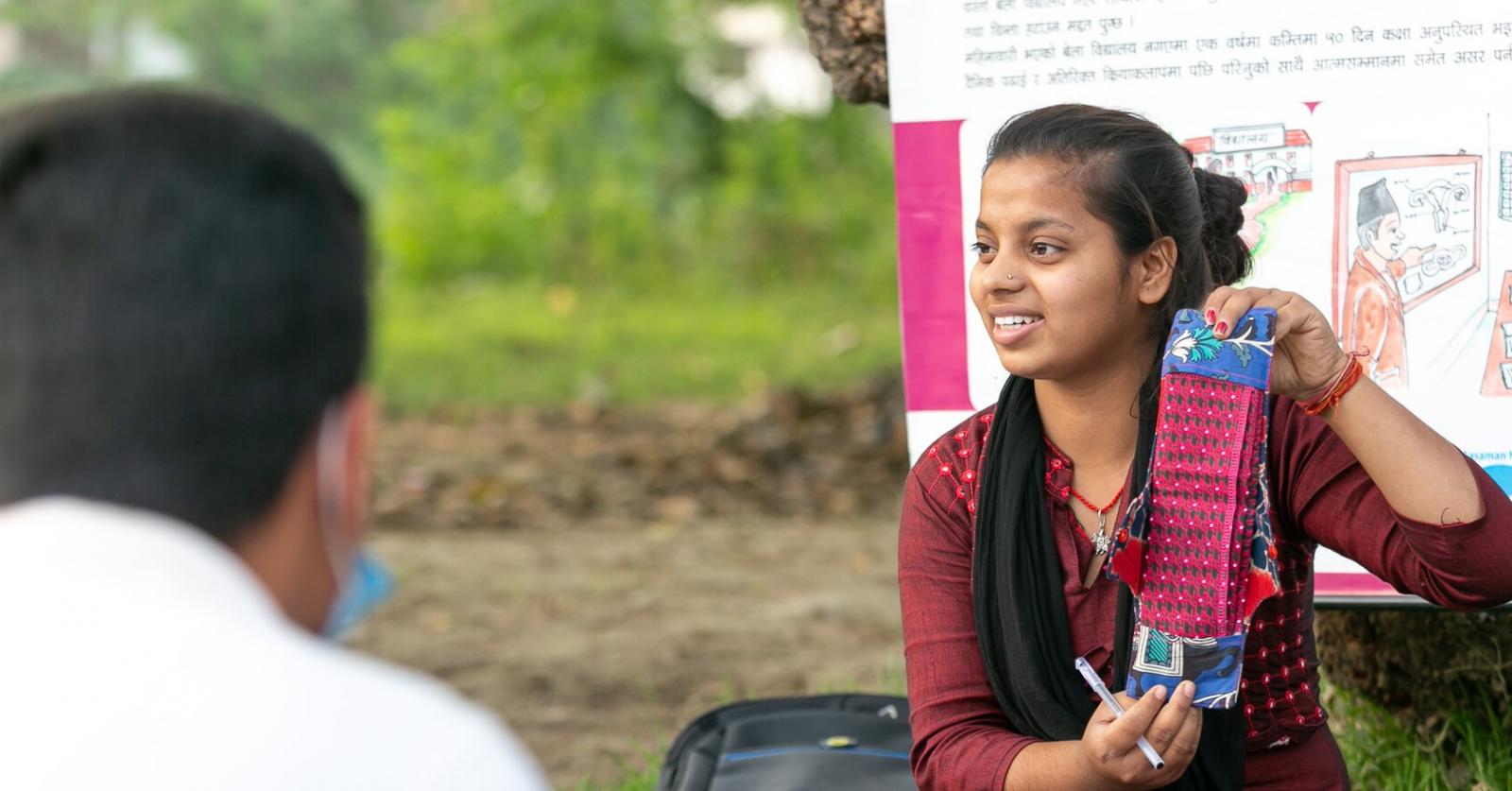
Support us with a donation
Read more
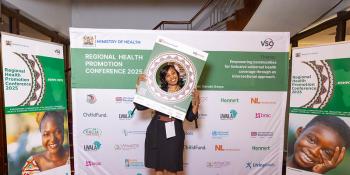
In photos: Our Regional Health Promotion Conference 2025
Check out some of our favourite photos from Regional Health Promotion Conference (RHPC25). This event sought to reimagine Universal Health Coverage through the lens of intersectionality.
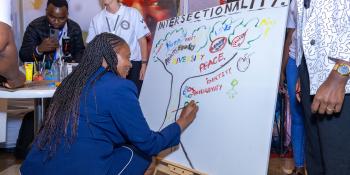
Using intersectionality to create healthy beginnings and hopeful futures
World Health Day brings global attention to the urgent need to end preventable maternal and newborn deaths. Learn more about how our Regional Health Promotion Conference is tackling these issues head on.
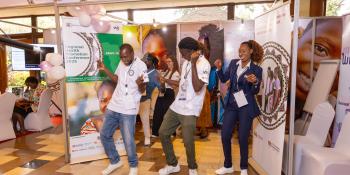
Highlights from the Regional Health Promotion Conference 2025
The Regional Health Promotion Conference 2025 reimagined Universal Health Coverage (UHC) through the lens of intersectionality, by bringing together experts from across East Africa and beyond.
